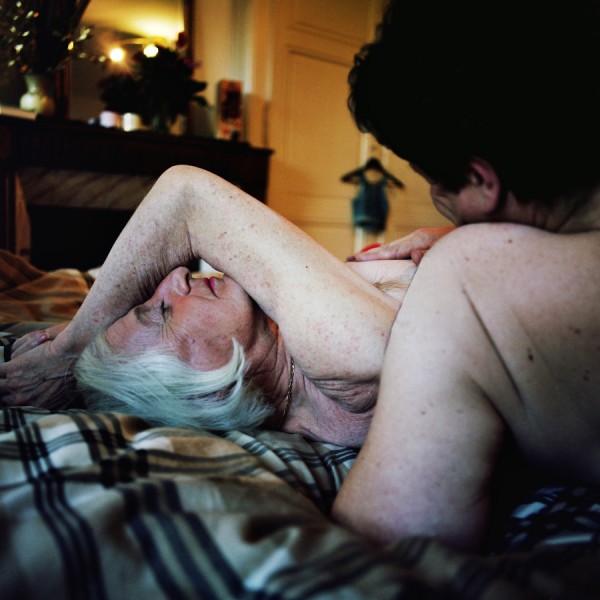
Amnesty International will be debating their policy on sex work this weekend at their annual meeting in Chicago. (You can sign this petition supporting an Amnesty policy change in favor of decriminalization here.) Unfortunately, the only article we could find on the event is littered with quotes like this one: ” “Virtually all people who prostitute themselves were first prostituted as children…,” [Illinois Attorney General Lisa] Madigan said.” Hmm, wanna cite a source for that, Ms. Attorney General?
Katha Pollitt takes vengeance on our friend Melissa Gira Grant for daring to criticize her valorization of Lean In feminism by lambasting Grant’s new book, asking, “Why Do So Many Leftists Want Sex Work To Be The New Normal?” Maybe because they’re actually listening to us sex workers? (And there aren’t quite so many of them—as far as we’re aware, sex work is still criminalized in the U.S.) Pollitt also managed to very mistakenly characterize Tara Burns’ piece for The New Inquiry as the work of someone too privileged to speak for “the women at the heart of this debate: those who are enslaved and coerced—illegal immigrants, young girls, runaways and throwaways.”
Speaking of Melissa, this subtly whorephobic Telegraph interviewer sure is frightened of her: “Melissa Gira Grant can be quite scary…her fist strikes the table. Every interviewer she has spoken to…has asked her how she became a sex worker—and she’s angry about it. ‘Why do you want to know?” she demands, blue eyes icy with rage. “Why is this important to you?’ ” Those ex-sex workers demanding their right to privacy—they’re terrifying!
The National Institutes of Health (NIH) is spending $398,213 on a project studying whether paying male Mexican sex workers for being free of sexually transmitted diseases will increase condom use. Ummm, the results of this research are pretty inevitable, aren’t they?
HuffPo profiled photographer Malika Gaudin Delrieu’s work on Claudette, proud intersex sex worker and senior citizen.
Vice Magazine made us roll our eyes with a piece entitled “Young Native Girls Are Being Sacrificed To The Canadian Sex Trade.” Mmmm, smells like white savior complex. Noticeably absent are quotes from Indigenous sex workers’ rights activists like Naomi Sayers or Jessica Danforth.
Today is the last day to take this Red Umbrella Fund survey on funding for sex worker organizations. The RUF plans to use the survey’s results to advocate for more and better funding opportunities for sex workers’ groups and networks.
Ex porn performer Jennifer Ketcham advocates for “a newly created branch of SAG for porn performers, union protection, and tireless intellectual property litigators and watchdog groups to stop or help diminish porn piracy” in HuffPo.
Kitty Stryker reports on how payment services like Paypal and Wepay discriminate against adult industry workers in The Frisky. Siouxsie Q joins the party by scrutinizing crowd funding sites like Kickstarter’s bias against sex workers in her SF Weekly column. We’d love to see a series on this, touching on similar practices by pay-as-you-go credit card companies like Greendot and Amazon’s recent deletion of many sex worker wish lists.
Last week, sex workers from across the UK and rest of Europe crammed into a select committee room in the House of Commons to argue against plans to change prostitution laws that would criminalize clients. You can see the footage here.
Styleite interviews porn performer Dylan Ryan on the Belle Knox scandal and how gender plays into whorephobia. The tiresome word “empowerment” gets thrown around a lot, but on the other hand, she references Courtney Trouble, Madison Young, Belladonna, and Porn Studies.
In Canada, “Patriarchal Values Dominate The Sex Work Debate.”
“The Problem With Sweden’s Prostitution Law“—hey, National Post author, sure you wanna limit yourself to listing just one?
In a story we missed last month, Nigerian sex workers in Lagos rallied at the Shomolu Local Government Secretariat on March third, International Sex Workers’ Rights Day, to demand rights and recognition and draw attention to police violence.
“Can Hollywood Make It Rain With Competing Stripper Movies?” Yeah, Washington Post, you’ve got a point there. Chippendales, the Magic Mike sequel, La Bare…that’s just too many films about male strippers! The public will revolt! Listen, we’ve got a lot of catching up to do. We’ll let you know when there’s too many male stripper movies.
The Swedish model just isn’t constitutional in a Canadian context, okay?